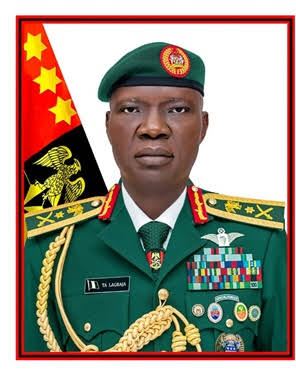By Linus Aleke, Abuja
The Acting Commandant, Nigerian Army School of Public Relations and Information (NASPRI), Lt. Col. AY Ngulde, has said that the urgent need to eliminate and avoid media antipathy cannot be over emphasized as its implications, pose greater threats on national security.
This, he said, is necessary because the security challenges confronting our dear nation require a robust synergy between the security agencies and the media, while, playing their various roles in maintaining national security.
Lt. Col. Ngulde, said this at the Directorate of Army Public Relations (DAPR)/Nigerian Army School of Public Relations and Information (NASPRI),
Media Workshop 2023, at the Nigerian Army Cyber Warfare School, Muhammadu Buhari Cantonment, Giri, Abuja.
He noted that the consequences of discordant relationship between security agencies and the media can culminate into increased public apathy or diminished public trust in the abilities of security agencies to perform their constitutional roles.
Col. Ngulde said, that it behooves on relevant security agencies whose responsibilities is to confront these challenges to work together while being supported by the media to project and saturate the cyberspace with operational successes as well countering the narratives of the adversary.
He said, the media has a statutory role under the social responsibility theory of the press to always take national security into consideration while carrying out their duty.
He said: “The engagement of the military in internal security operations has exposed them to operational challenges arising from day to day process in carrying out their duty. Thus the need to woo public support through winning the hearts and minds of the populace for the success of these operations becomes inevitable. In order to achieve this, the media is the perfect tool that cannot be replaced. Consequently, collaboration between the military, security agencies and media should be nurtured and maintained at all times in order to meet every operational objective. The need for constant interaction between the military and the media becomes necessary through a veritable platform. Such platform is what this media workshop has created and it is my candid belief that the topics carefully selected for discuss will do justice to issues bothering on effect of media reportage on national security and the implication of fake news during military operations”.
He applauded the the Chief of Army Staff (COAS), Lt Gen TA Lagbaja for providing a befitting structures and the subsequent relocation of NASPRI to its new site at Muhammadu Buhari Cantonment Giri, Abuja.
NASPRI, since inception in April 2010, he said, has trained over 4000 students which, include commissioned and non-commissioned officers drawn from the Nigerian Army, Nigerian Navy and the Nigerian Air Force.
The Special Guest of Honour at the event and Chief of Army Staff, Lt Gen Taoreed Lagbaja, said that the Acting Commandant of NASPRI, Lt. Col. Ngulde is a role model for younger generation of officers of the Nigerian Army.
He pointed out that wars in the 21st century, though, fought in the battle fields, are won or lost in the cyber space.
He further noted that today’s security environment is characterized by several security challenges, such as insurgency, armed banditry, separatist agitations, kidnapping amongst other contemporary security challenges.
Represented by the Commander, Nigerian Army Cyber Warfare Command (NACWC), Major General AA Ayannuga, the COAS, noted that the media shapes not only the narratives but influences and garners public support which is vital for a successful military operation.
He said, the continuous and seamless collaboration between the Nigerian Army and the media must be maintained at all times, adding that the Nigerian Army in particular and the Armed Forces in general relies on the support of the media to perform their statutory roles as enshrined in the constitution.












